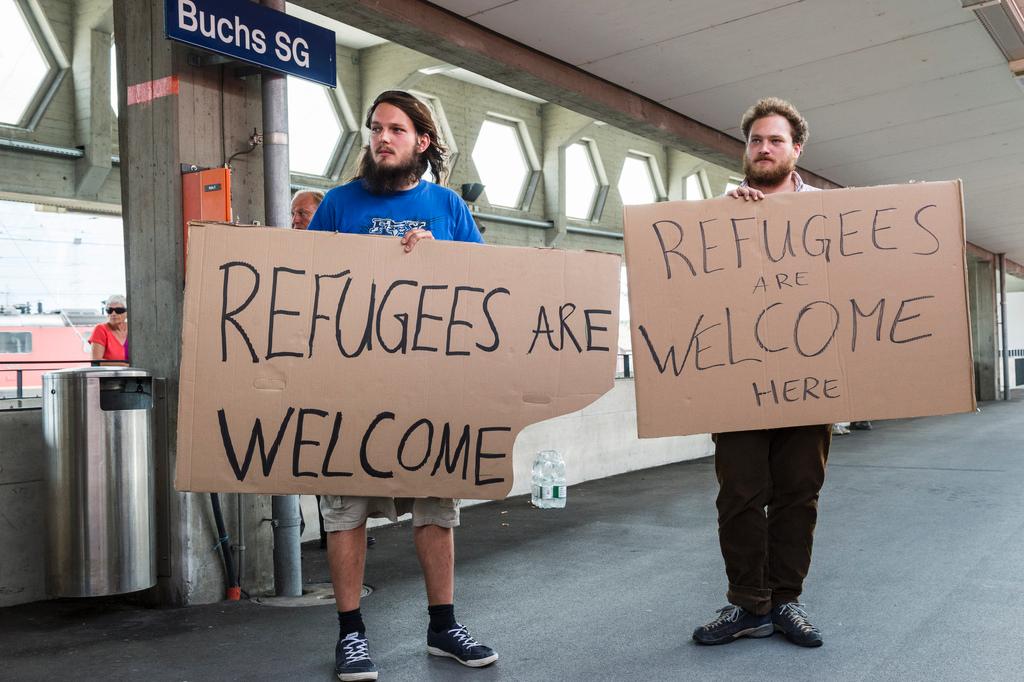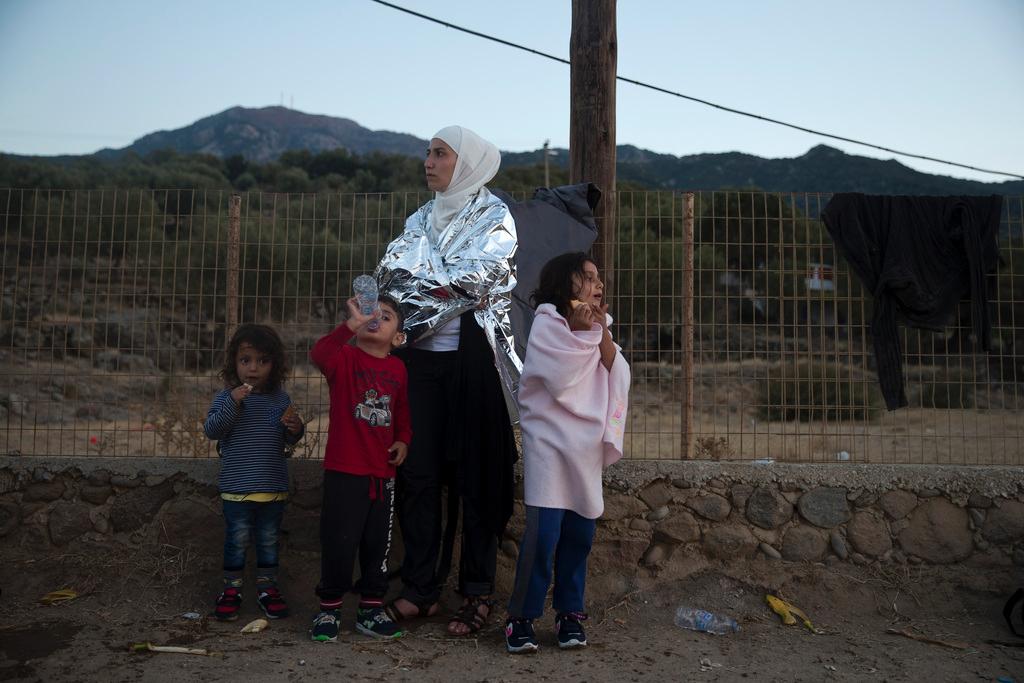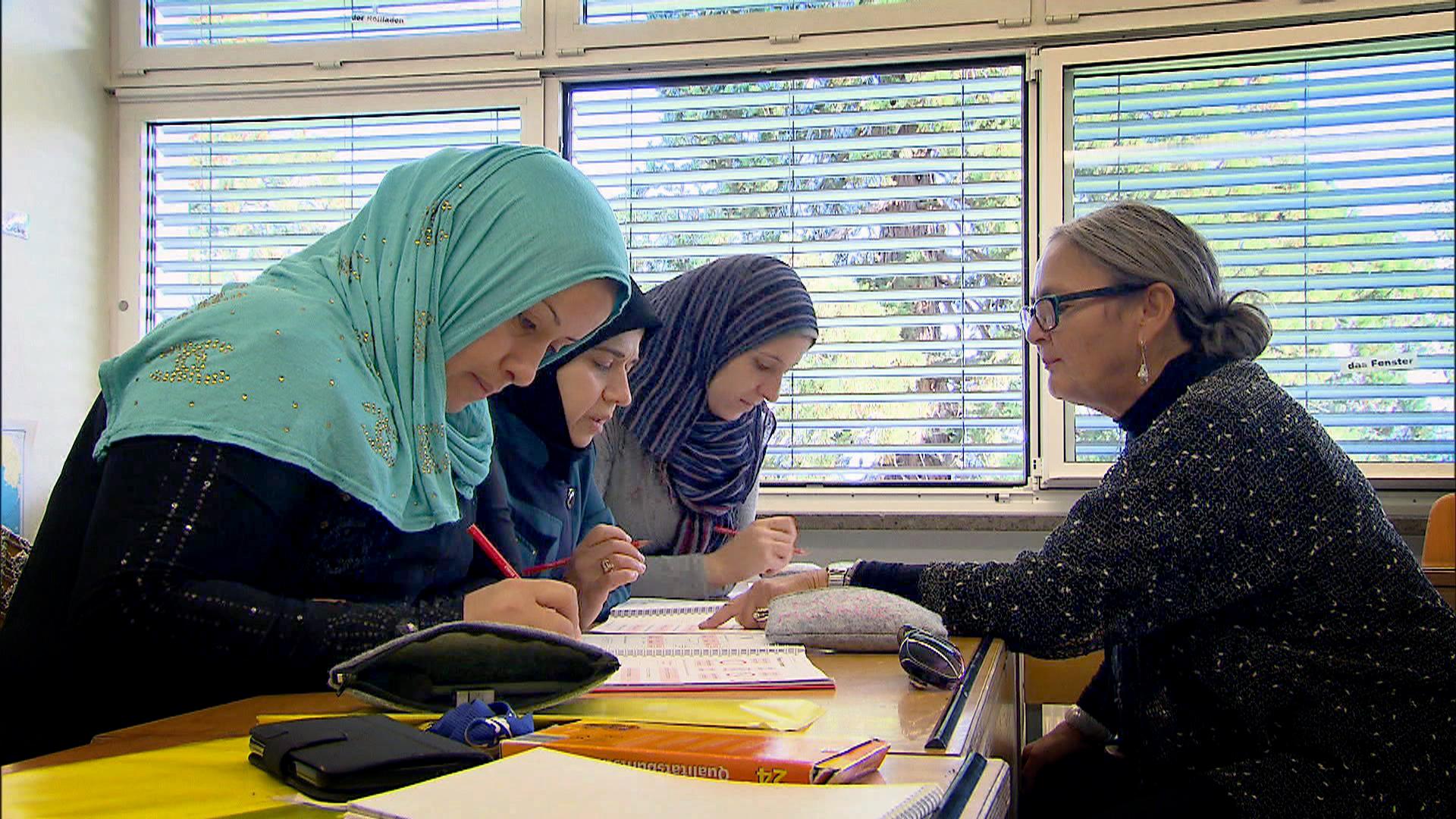Twitter traces migrants’ destinations

The Swiss have been preparing themselves for an influx of refugees from Syria. While volunteers waited for people who weren’t going to come, twitter could have told them that Switzerland wasn’t on their radar.
“Switzerland is not, and has never been actually, that much of a destination country for refugees, apart from Eritreans and Sri Lankans,” Constantin Hruschka, head of protection at the Swiss Refugee Council, told swissinfo.ch.
The non-profit, umbrella organisation co-ordinates legal advice sessions for asylum applicants, and found out why asylum seekers were applying in Switzerland. Commonly, people had come with different intentions. “It’s more a transit country. People who come from Italy often tell us they wanted to go to Germany or Sweden, but they were just caught in Switzerland.”
By using key words in Arabic, a search on twitter confirms the NGOs findings. swissinfo.ch mined twitter data over two periods – in September and again at the end of October. This is what we found.
Looking for information shared among Syrian refugees, detailed searchesExternal link between September 15-23 revealed some interesting patterns. Using groups of three Arabic keywords together, such as ‘Switzerland’ with ‘asylum seekers’ and ‘Syria’, or ‘Switzerland’ with ‘Syrian refugees’ or ‘Syrian war’ there were few relevant results on the information people were sharing.
After searching for a number of keywords combined with ‘Switzerland’ including ‘asylum’, ‘train’, ‘border’, ‘police’ or ‘entry’ and getting either zero results on twitter, or tweets on completely different topics, such as holidays or tourism, our search turned to Germany, where the arrival of refugees and migrants was receiving a lot of attention.
We are thrilled by the myriad of relief supplies the citizens of #MunichExternal link provided for the refugees at the Central Station.
— Polizei München (@PolizeiMuenchen) September 1, 2015External linkMining twitter for tweets in Arabic containing the word ‘Germany’ with either ‘reach’, ‘asylum’, ‘tips’, ‘advice’, ‘shorter way’, ‘best way’ or ‘traffickers’ brought numerous results. ‘Reach’ and ‘asylum’, brought the most.
The search for tweets mentioning Germany and the most-used keywords was repeated between October 18-27. We compared this to keywords’ use in tweets where Sweden was the mentioned country (another key destination for refugees according to Eurostat statistics) and Switzerland.
What kind of information is being shared by Syrian refugees headed across Europe, or at the very least, those tweeting about asylum in Arabic? To find out, we looked at the most frequently used words in association with these search terms to help refine the information.
A closer examination of tweets in Arabic that included ‘Germany’ with either ‘reach’, ‘refuge’ or ‘asylum’, showed that the main topics of discussion were information concerning routes, destinations and laws in Germany.
One example that showed up repeatedly under the search for ‘Germany’ and ‘asylum’ in October, was a form written in German and ArabicExternal link for volunteer translators to help Arabic-speaking refugees in a medical setting.
Research by other organisations has shown that google searchesExternal link followed a similar pattern. At the end of September, the most popular search terms in Syria showed that the people were looking for information on how to reach Germany.
مجموعة من اللاجئين يعبرون الحقول في سلوفينيا ومنها إلى النمسا بغية الوصول إلى ألمانيا pic.twitter.com/Pd2S1J95drExternal link
— Sky News Arabia (@skynewsarabia) October 21, 2015External link“A group of refugees crossing the fields in Slovenia and Austria to Germany.”
Refugees continued to head into Europe in October. The Geneva-based UN Refugee Agency said the number of migrants and refugees accessing the continent by sea in September was almost the same as during the entirety of 2014, and October’s numbers were higher than September’s.
Not on the map
In 2015, up to the end of September, Syrians were headed primarily for Germany, registering most applications for asylum there. As the next graphic shows, Switzerland remained the main destination for Eritreans, even more so than Germany. Applications from Syrians in Switzerland were few and far between.
Up to the end of September this year Switzerland received 23,975 requests for asylum – 3% of the European total. Only 2,330 came from Syria.
There are a number of factors at play when looking at the reasons behind fewer refugees coming to Switzerland. One is that Switzerland is simply not on the route taken by refugees when they enter Europe through the Balkans. The UN Refugee Agency confirmed at the start of November that the route through Turkey and Greece had become widely preferred overall to travelling through Libya to Italy.
Secondly, refugees want to join friends, relatives or contacts who are already set up in a destination country. “These cultural links and traditions play a very important role in wherever people go,” says Hruschka.
A country’s reputation in terms of how welcoming it is to those seeking asylum is also a factor. “They [refugees] also know about the bad status Syrians get in Switzerland compared with in other countries,” he adds. “We have very good contact with the Syrian community here and it is very clear that they tell their family or extended family not to come here, because if you go to Switzerland you end up with a provisional admission and you can’t travel within Europe.”
Hruschka explained that Syrians in particular want to travel in Europe once they have arrived, as they want to meet other people who they know, but who ended up in different countries.
“I don’t find it that surprising that refugees are communicating on Facebook…and social media. Syrians are special in that way, because the people who are leaving the camps now [in Jordan, Lebanon or Turkey] are the people who had a lot, who had a very good education but have spent all their money…..so of course they have modern technology, and they use it.”
Our method
To gather information from twitter we carried out API searches using NodeXL, a free, open-source template for Microsoft Excel. Using its twitter data import feature we were able to find data with specific search terms from social media networks.
As we wanted to search keywords in Arabic we encoded the Arabic keywords to turn them into a format that worked with the NodeXL search system, as it did not recognise Arabic characters. Our searches were refined with the help of our Arabic department.
With input from Kamel Dhif and Abdelhafidh Abdeleli

In compliance with the JTI standards
More: SWI swissinfo.ch certified by the Journalism Trust Initiative




You can find an overview of ongoing debates with our journalists here. Please join us!
If you want to start a conversation about a topic raised in this article or want to report factual errors, email us at english@swissinfo.ch.